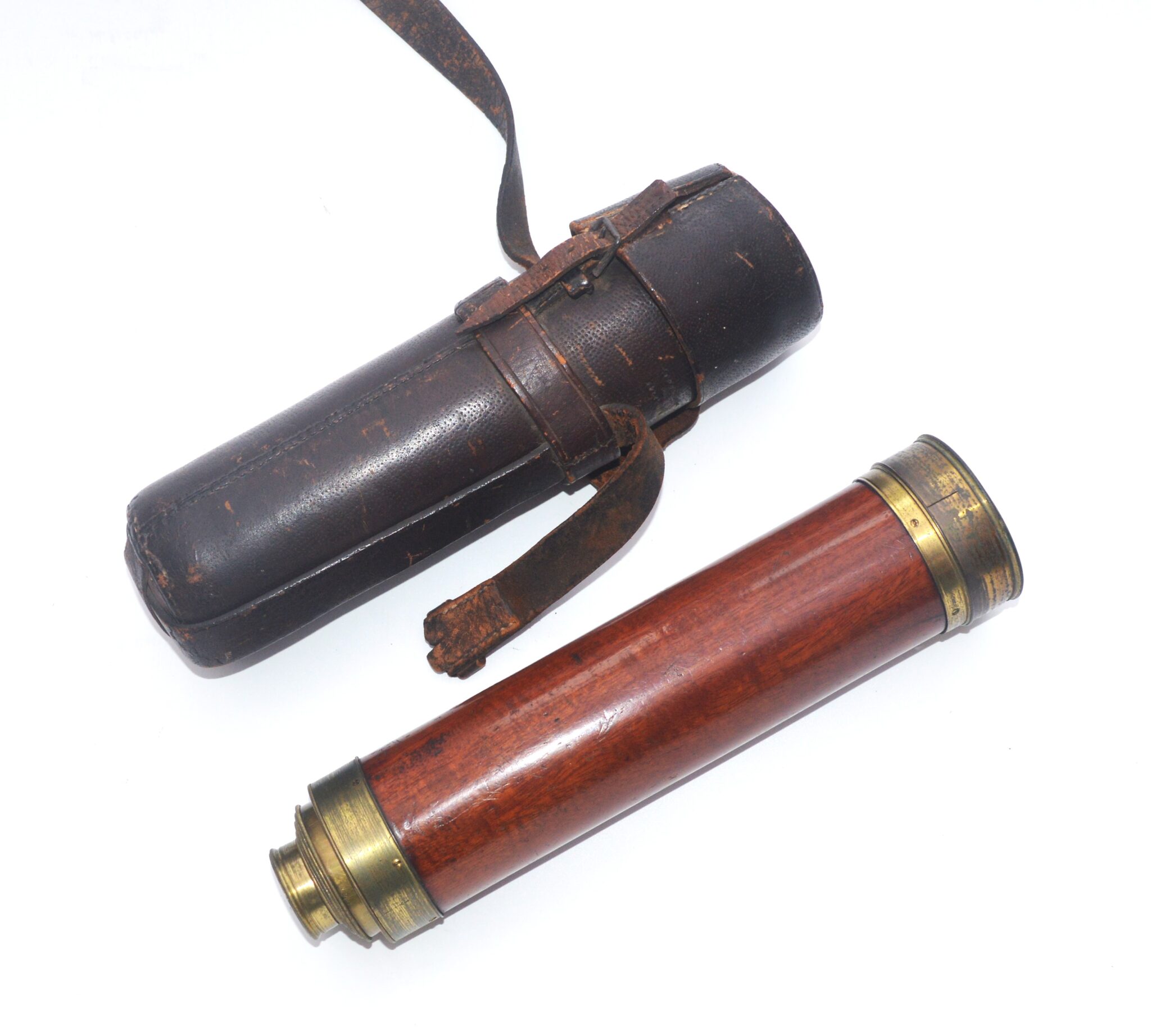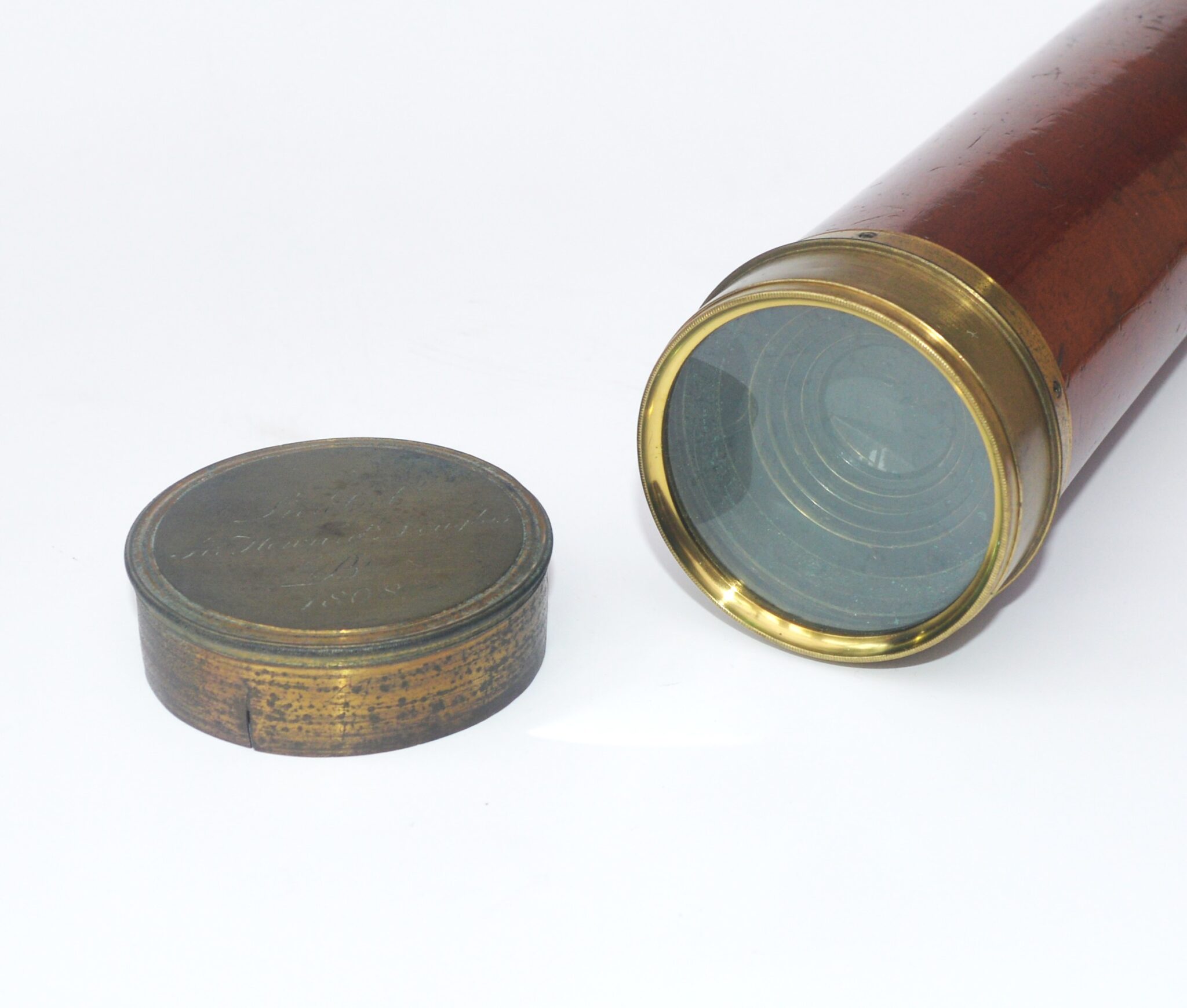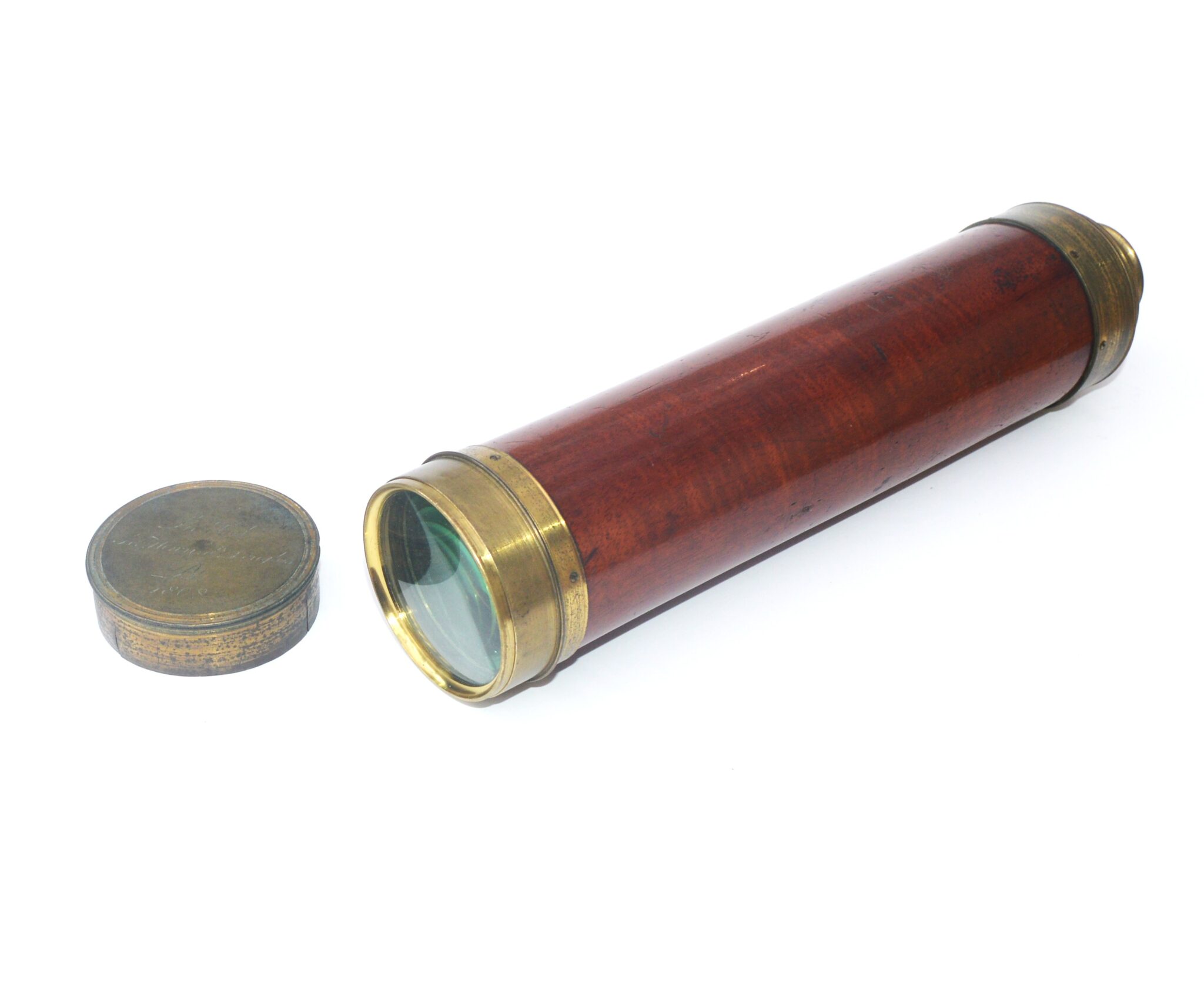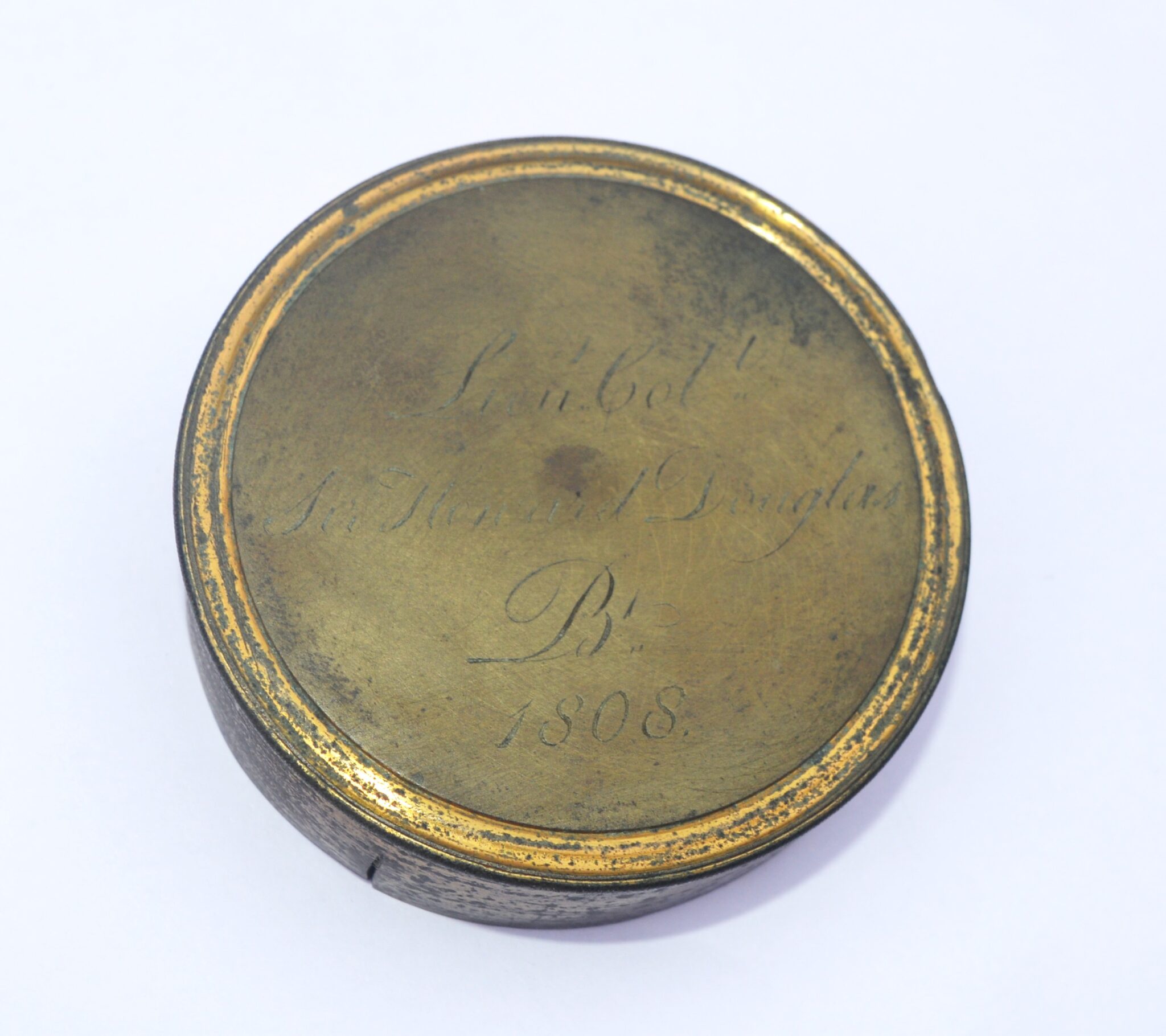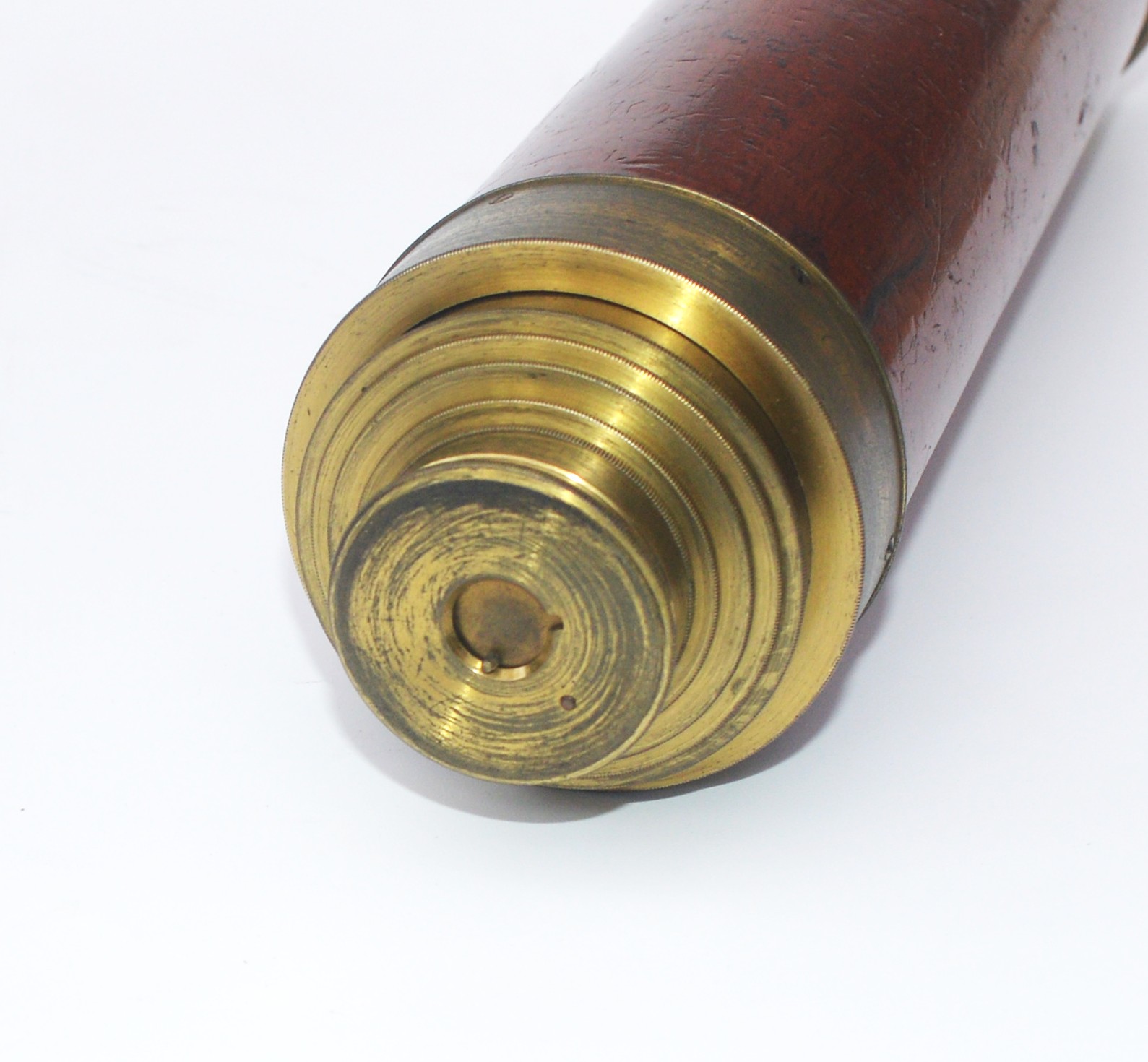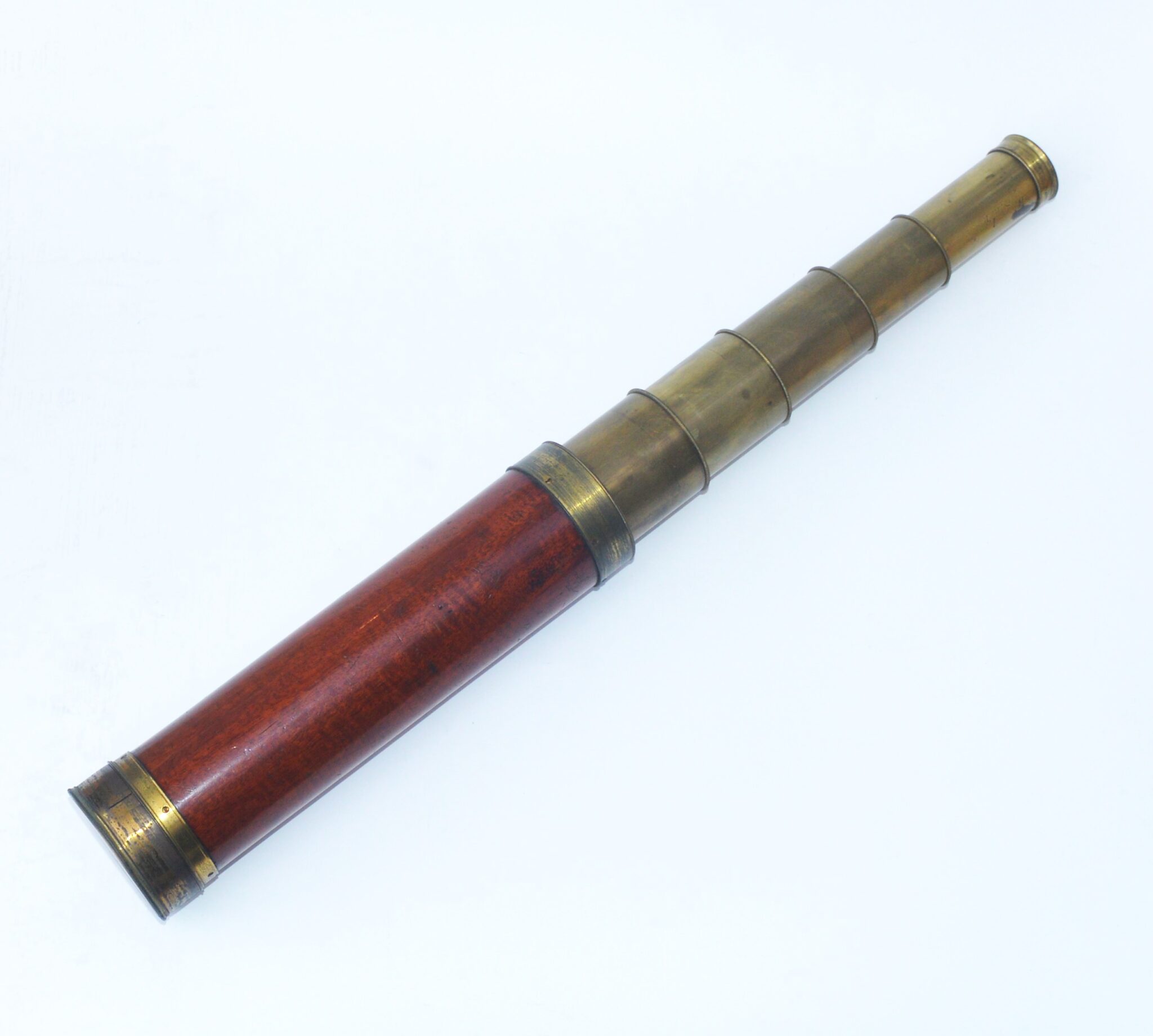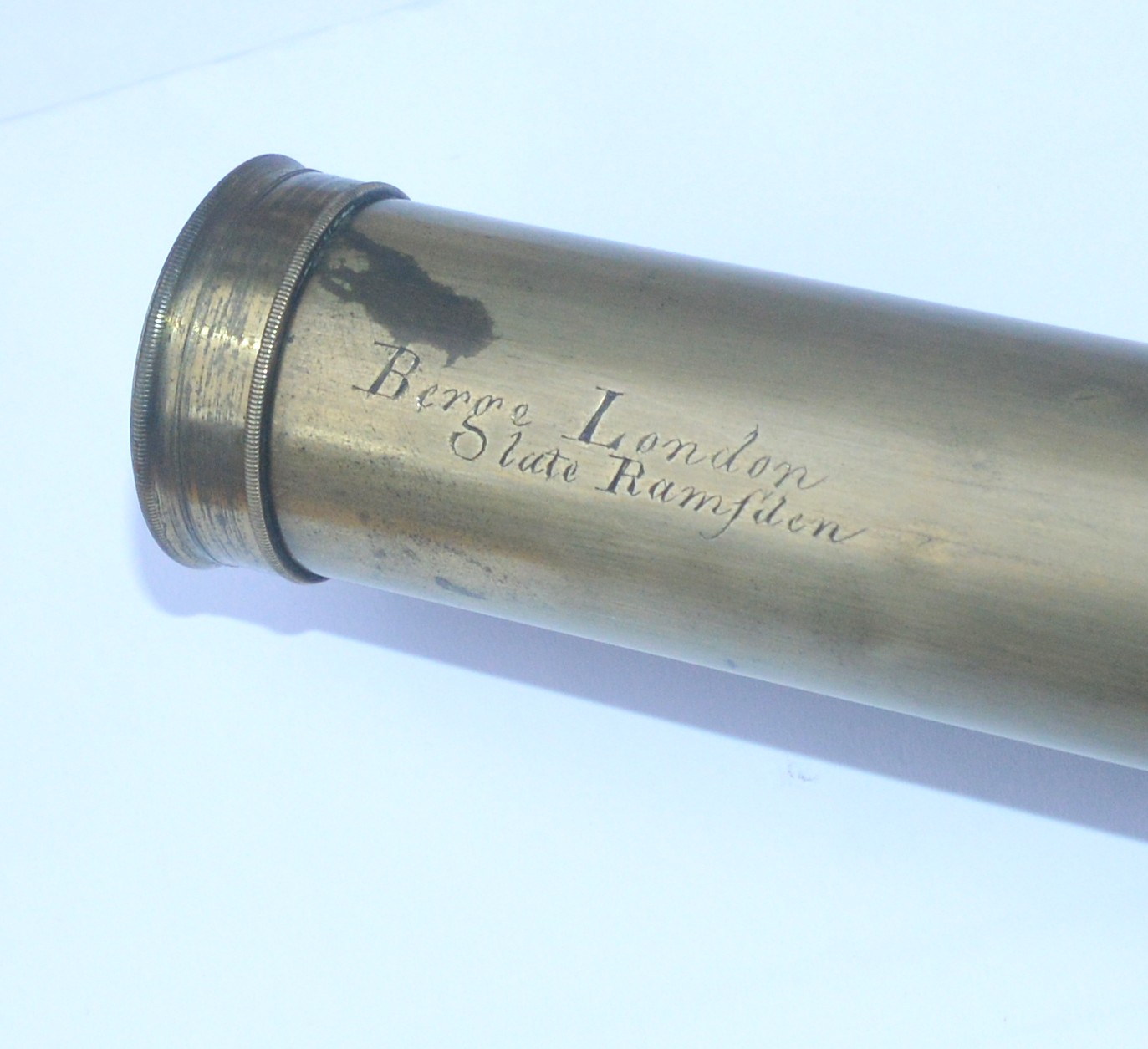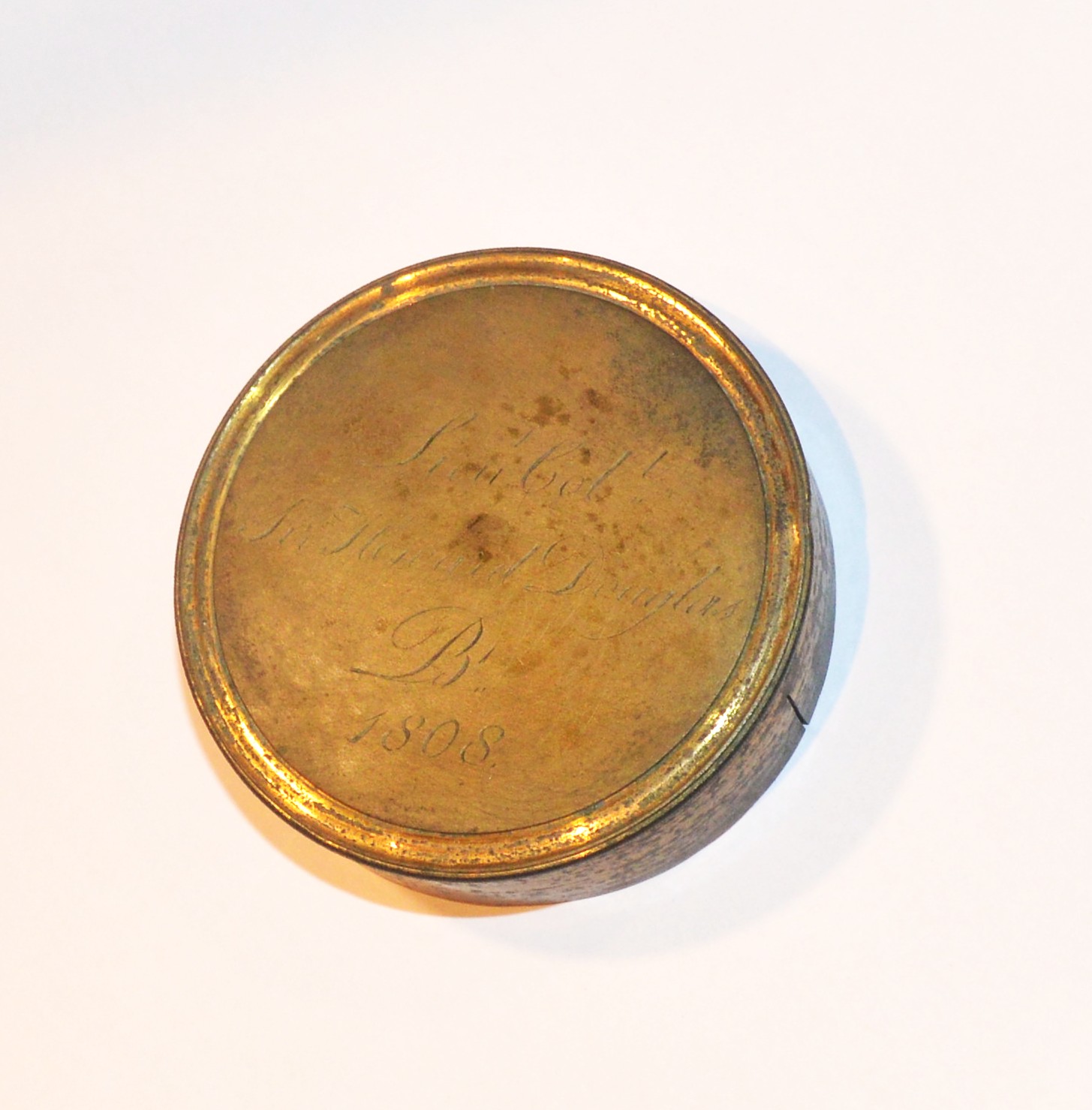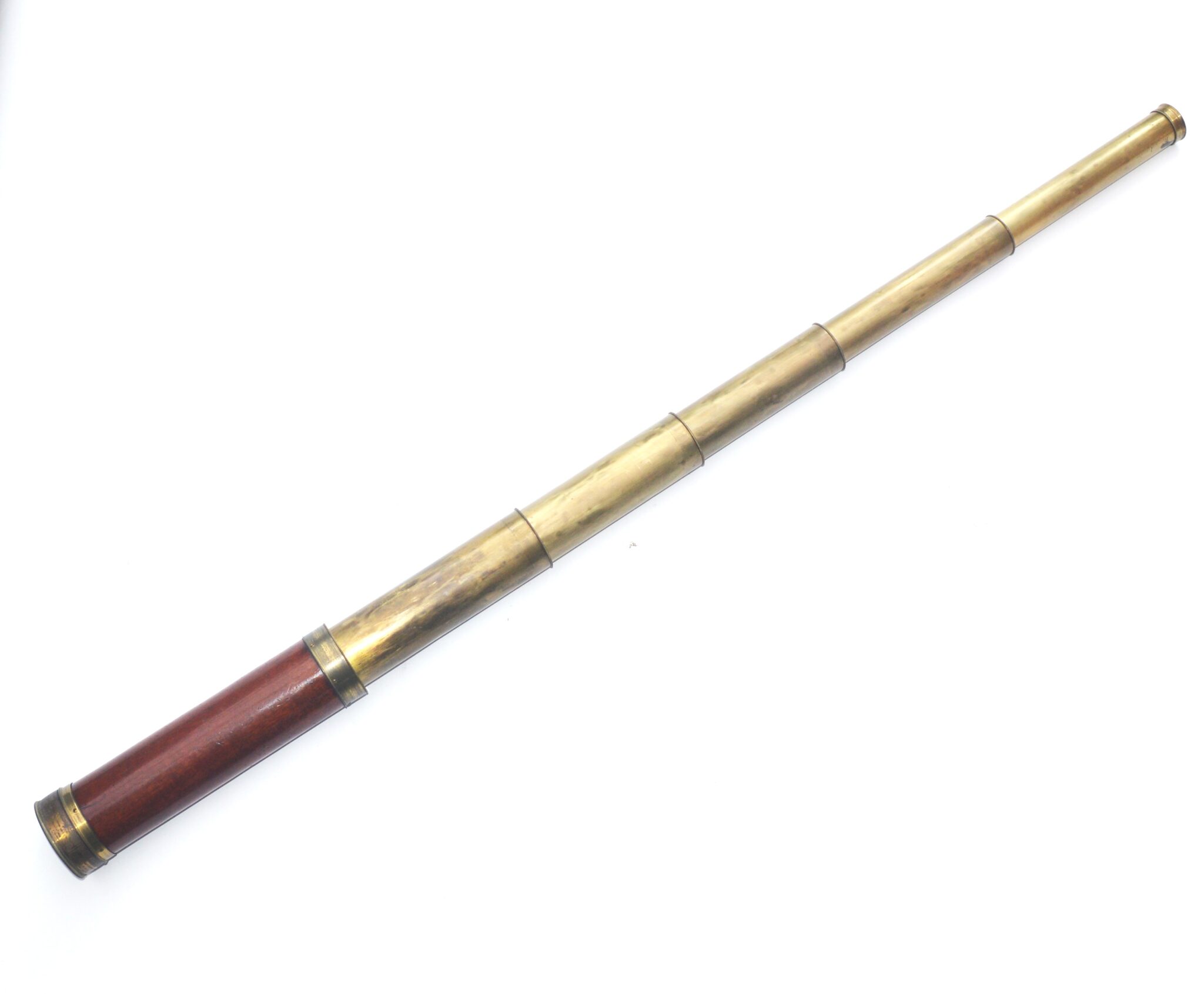Description
SOLD – A large hand held 5 draw brass telescope, the first draw engraved, ‘Berge, Late Ramsden, London’. The lens cap is engraved ‘Lieu’t Col’ Sir Howard Douglas Bt 1808′. The telescope measures 10 inches ( 25.5 cm ) when closed and pulls out to 42 inches (107 cm ) and is free of chips, cracks etc. The main lens has a visible aperture of 2 inches ( 5 cm ). Complete with lens cap, eyepiece dust slider and protective leather case ( strap broken, one end split on the seam). The draws operate nice and smoothly and the telescope gives a fine image.
General Sir Howard Douglas, 3rd Baronet, GCB, GCMG, FRS (23 Jan 1776 – 9 Nov 1861) was a British army officer born in Gosport, England, the younger son of Admiral Sir Charles Douglas, and a descendant of the Earls of Morton. He was an English army general, author, colonial administrator and Member of Parliament for Liverpool.
- Early Service:Douglas began his military career as a second lieutenant in the Royal Artillery in 1794 and served in various roles, including a stint on the Labrador coast after a shipwreck.
- Royal Military College:He served at the Royal Military College, a key role in the development of staff education, and was a Brevet Lieutenant Colonel by 1806.
- Naval Gunnery: His influential Treatise on Naval Gunnery led to the establishment of the first naval gunnery school, HMS Excellent.
- Douglas was promoted brevet Lieutenant-Colonel in 1806-09 in the Peninsular War and was present at the Battle of Corunna after which he took part in the Walcheren Campaign.
- New Brunswick:As Lieutenant-Governor, Douglas oversaw significant developments in New Brunswick, including the founding of King’s College (the precursor to the University of New Brunswick), building roads and public buildings, and founding agricultural societies.
- The Maine Boundary Dispute:He also defended the province’s rights during the 1828 Maine boundary dispute with the United States.
- Ionian Islands:Later, he served as Lord High Commissioner of the Ionian Islands from 1835 to 1841.
- Beyond his military writings, Douglas authored books on military and political subjects.
- Honors:He received multiple honors, including being appointed a Baronet, a G.C.B., and a G.C.M.G., and was elected to the Royal Society (F.R.S.). In 1837 he became a Lieutenant-General, in 1840 a KCB, in 1841 a civil GCB, and in 1851 a full general. He was given the colonelcy of the 99th (Lanarkshire) Regiment of Foot from 1841 to 1851 when he transferred as colonel to the 15th (the Yorkshire East Riding) Regiment of Foot, a position he held until his death in 1861.




